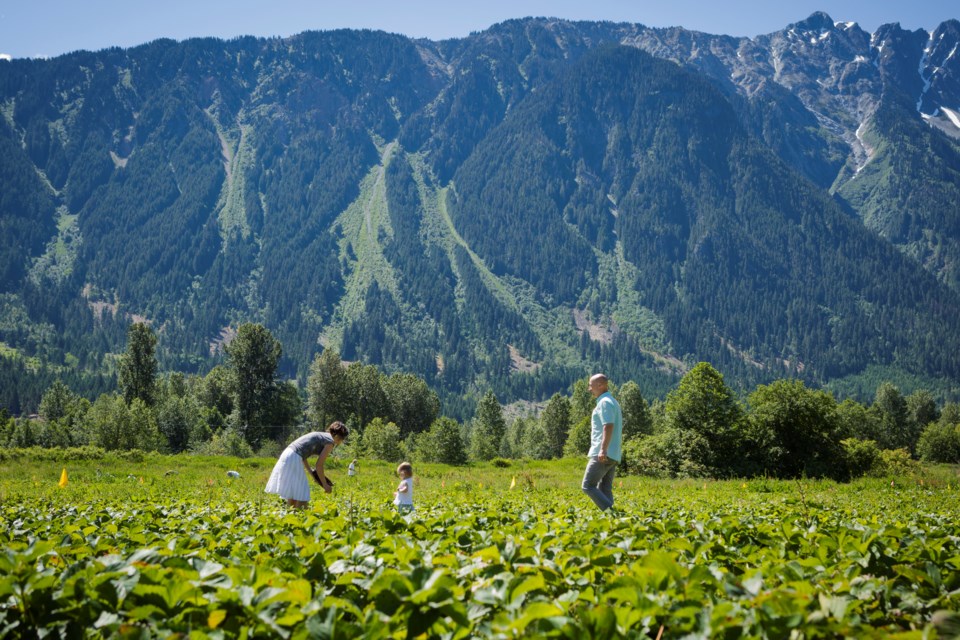Here comes one of the best long weekends of the year, thanks to (Beautiful) B.C. Day!
Believe it or not, B.C. Day has only been around since 1974. Thankfully, it also always falls on the first Monday in August so you can get in some extra summer holiday time. It also happens pretty close to Aug. 2—the date when Britain’s Parliament established the Province of British Columbia in 1858. That’s when the then-pillars of British power figured they’d better set up an official province fast due to the thousands of mostly American gold rush fortune hunters that, in 1857, started flocking to what had previously been a relatively quiet corner of the colonial empire after gold was discovered in sand bars of the Lower Fraser River.
The holiday choice also followed suit with other August civic holidays already established in other provinces across Canada.
Regardless of where you stand on the colonial land grab, here comes one of the best holiday weekends of the year, and there’s no better way to celebrate than with some true-blue B.C. bounty that’s also nice and green.
BEYOND SALMON
I hate to bring up a downer for a normally fun long weekend but, traditionally, if you asked most locals what they were planning for at least one feast with family or friends for the B.C. Day weekend, wild B.C. salmon—barbecued or otherwise—would have topped the list. Them were the good ol' days.
Now with climate change warming and acidifying rivers and oceans, salmon streams drying up from drought, and far too many wild B.C. salmon stocks endangered by viruses from open-net Atlantic salmon fish farms (which are still allowed in B.C. coastal waters until 2025!), way too many of our salmon stocks are in major trouble. For starters, a lot of wild salmon stocks in that same "gold rush" Fraser River system mentioned above—which is also one of the largest sockeye-producing watersheds in the world—are considered endangered by the Committee on the Status of Endangered Wildlife in Canada.
I've worked with B.C.'s fisheries for years, and I'm the first to support sustainable B.C. operations, like Skipper Otto and other community-supported fishers. I also totally sympathize with bewildered consumers trying to make wise fish and seafood choices, especially without proper labelling and standards. Add in all the other twists and turns—including changes in organizations like Ocean Wise, which is no longer tied to the Vancouver Aquarium, and the hot politics of B.C.'s fishing industry—and it's a major challenge trying to choose truly sustainable B.C. salmon or any fish or seafood, especially when some places misuse sustainable-catch labels!
Still, B.C. Dungeness crab and spot prawns are considered sustainable choices (although spot prawn season is over now, so you'll have to wait until next year), as well as some catches like certain B.C. rockfish. As for sustainable, "B.C.-born-and-raised" in the meat-grilling department, there are always some reliable picks across the province, like the Sea to Sky's Pemberton Meat Co. and Stony Mountain Farm, originally in Squamish and now up near 100 Mile House, both of which you can find at the Pemberton Farmers' Market and beyond.
But overall, unless you're sure of the provenance of your salmon and other B.C. fish and meat choices—and you can afford those choices—there's one more good reason to go plant-based when you go "B.C." anytime.
TRUE BLUE B.C. IN SHADES OF GREEN
I've long thought farmers across the province, or anywhere, for that matter, are nothing short of heroes for supplying us with amazing, locally-grown fruits and veggies. In B.C., I'm always partial to smaller-scale "ma-and-pa" operations like you find in the Sea to Sky and that seminal river which keeps coming up, the Fraser Valley. The latter is home to 15 per cent of B.C.'s farms, and they average only one-fifth the size of all B.C. farms!
Where would we be without our true-blue B.C. classics, like Pemberton's fine potatoes, Chilliwack corn and those dynamite berries from the Fraser Valley, especially the fresh blueberries always in full swing right around B.C. Day?
Now with wildfires, heat and drought becoming summer "norms" (no doubt you've seen all the reports on record-busting July heat across B.C. and around the world) counterpointed by horrendous storms, like the atmospheric river that hit the Fraser Valley in November 2021, I think our local farmers have moved into the realm of superheroes. And there's no better way to support them than buying and buying even more from them, including imperfection, like those carrots and beets with a wee blemish, a head of lettuce that's slightly misshapen, or an apricot with a bruise.
It only takes a bit of effort and change of habit to find local farmers and suss out their products, and the B.C. Association of Farmers' Markets has a super website to help. It links you to local markets, which in turn link you to websites for specific farm vendors. Plus, you can even find local farm products in some good, B.C.-owned grocery stores, like Nesters Market and Creekside Market in Whistler.
If you go for community-supported agriculture—where, just like community-supported fisheries, you "pre-buy" a share of the harvest—you're really helping those super B.C. producers.
So do I hear you digging out your recipe for a Pemby potato salad, topped up with Chilliwack corn, some Fraser Valley or Okanagan fruit, a lovely B.C. wine or craft beer (like Pemby's Beer Farmers) all topped up with homemade Nanaimo bars for dessert?
You can't get more B.C. than that.
Now, with just a little more public pressure on our federal and provincial politicians, maybe we can get those damned open-net salmon pens out of the water and onto land, where they should be, and help our poor beleaguered wild salmon stocks before it's too late.
Glenda Bartosh is an award-winning journalist who’s a total believer in regular holidays and local farmers.




